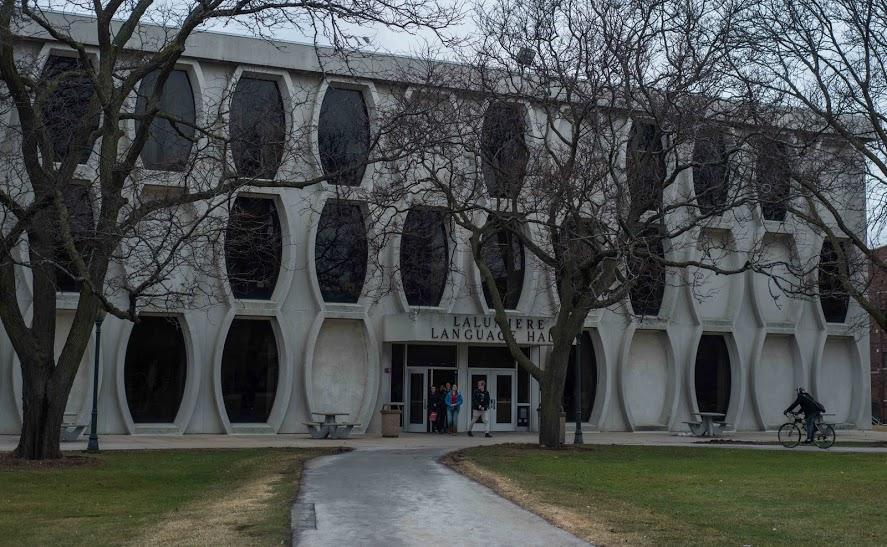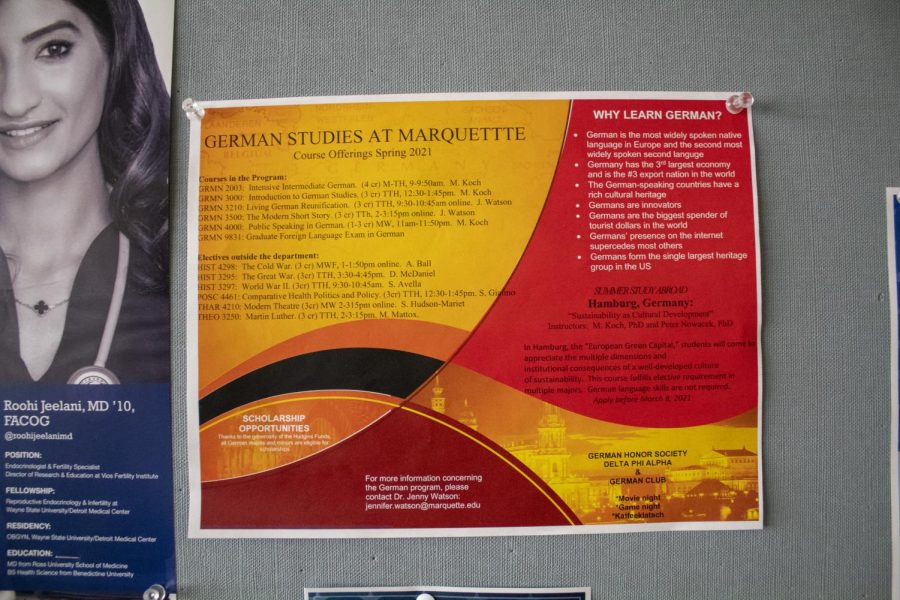The College of Arts & Sciences will add four majors and five minors at the beginning of fall 2016.
The new majors are Bioinformatics, Data Science, Latin American Studies and Environmental Studies. The new minors are Arabic Language Studies and Culture, Latin American Studies, Environmental Studies, Culture, Health and Illness and Law & Society.
Richard Holz, dean of the College of Arts & Sciences, believes providing these majors and minors will better serve students. Holz said the additions will help position Marquette and the college as a place for innovative degree programs.
“(The majors/minors) should be attractive academic options for both prospective and current students,” Holz said in an email. “It helps to increase student learning by engaging students and helping them develop knowledge, insights, problem-solving skills and a passion for learning.”
Holz said it is vitally important to offer majors that students find interesting and allows flexibility. He said the more areas available, the more students can study in a variety of different subjects and possibly double major in many of them.
The changes coming to the college will also include building on interdisciplinary work within the college.
“Many new and exciting areas are emerging at the crossroads of traditional disciplines,” Holz said. “We are continually looking for ways to bring faculty together from different disciplines to be able to offer students educational opportunities at the forefront of emerging disciplines.”
Rosemary Stuart, associate dean for planning in the College of Arts & Sciences, said student input and the current employment trend sparked the change.
Stuart worked with faculty at different stages to help develop the new majors and minors. She said this included working on the program development, the colleges review process and the submission of the proposal to the Provost’s office for approval.
Stuart said all of these majors were added with careful consideration. She said Data Science and Latin America Studies are both emerging interdisciplinary fields. Environmental Studies has some of the fastest employment growth while Bioinformatics is central to fields such as healthcare, pharmacogenomics and personalized medicine.
“The College of Arts & Sciences is continually seeking to provide innovative and transformative educational experiences for our students,” Stuart said in an email. “These new programs also represent areas of our faculty expertise, scholarship and research and thus as a college we are poised to deliver very high-quality programs.”







Smitha416 • Nov 26, 2016 at 1:20 am
Very nice post. I certainly appreciate this website.